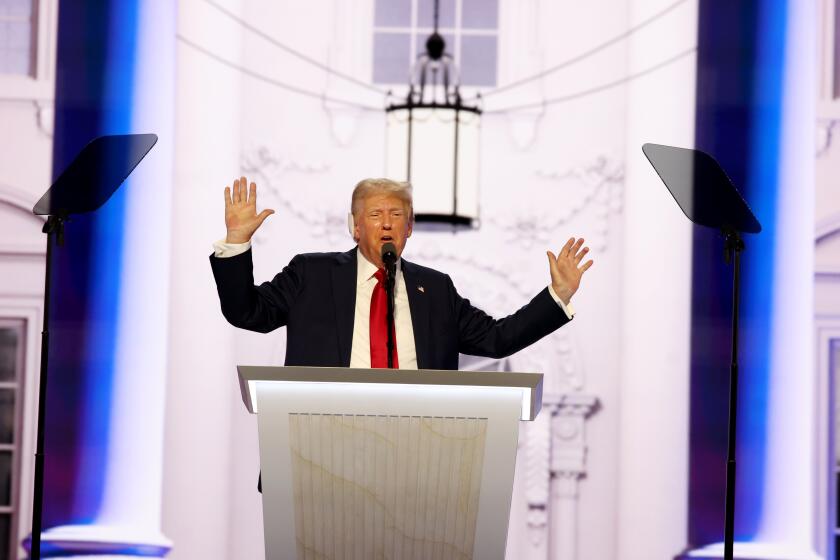Faith and government
The decision of former British Prime Minister Tony Blair to join the Roman Catholic Church might seem to be of little interest to Americans, except for Anglophiles and students of ecclesiastical politics. But Blair’s “conversion” -- a term left over from the pre-ecumenical 20th century -- offers a timely opportunity to compare and contrast the relationship between religion and politics in the United Kingdom and the United States.
We say “timely” not only because this is the season of Christmas (and the supposed war on that religious holiday) but because the 2008 presidential campaign already has blown a few holes through the “wall of separation” between church and state. From Mitt Romney’ self-conscious insistence that he recognizes Jesus as his savior, to Mike Huckabee’s self-designation as a “Christian leader,” to Rudolph W. Giuliani’s confession of personal failures, the 2008 race has sometimes seemed like an election for preacher in chief.
In Britain, politicians are less prone to flaunt their faith; otherwise, as Blair once observed, people might think they were nutters. The paradox, of course, is that, unlike the United States, England has an established church. Because the queen is both the head of the Church of England and the sovereign of the realm, her prime minister traditionally has played a role in the selection of the church’s bishops -- a position Blair might have found awkward if had become a Catholic while still in office.
Blair’s spiritual pilgrimage points to another difference between the U.K. and the U.S. that bolsters the idea of a wall of separation. Although the Church of England is the established church, its services are less patronized than those of the Roman Catholic Church, from which it separated itself under Henry VIII. So maybe, as separationists argue, the embrace of religion by the state is bad for believers. Religion thrives in this country despite the lack of an established church -- and despite Supreme Court decisions forbidding official prayer and Bible readings in public schools.
In another sense, however, the Blair conversion highlights some similarities between the U.K. and the U.S. Although some Catholics in Britain regard it as a coup for their church, others -- particularly opponents of abortion -- have questioned how a man who as prime minister supported legal abortion could be received into the bosom of a pro-life church. In the U.S., Roman Catholic politicians such as John F. Kerry have been criticized for supporting pro-choice policies in the political sphere. In the 2004 presidential election, some bishops indicated that they might deny Holy Communion to Kerry if he came to the rail. This year, in anticipation of the 2008 election, the U.S. Conference of Catholic Bishops has advised Catholic voters that abortion is an “intrinsic evil” and that if both candidates support it, voters may choose to abstain.
England has an established church; America doesn’t. Yet in both countries, politicians and voters continue to struggle over what it means to render unto Caesar the things that are Caesar’s and to God the things that are God’s.
More to Read
Get the L.A. Times Politics newsletter
Deeply reported insights into legislation, politics and policy from Sacramento, Washington and beyond. In your inbox three times per week.
You may occasionally receive promotional content from the Los Angeles Times.









